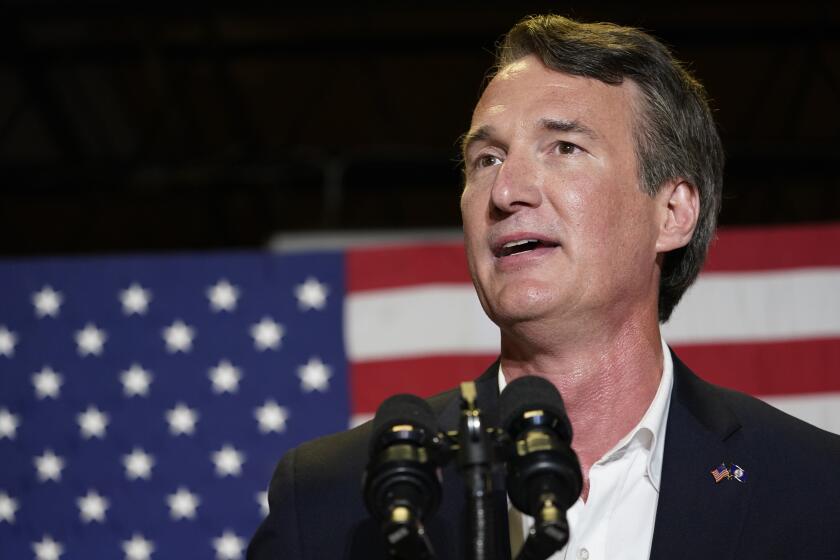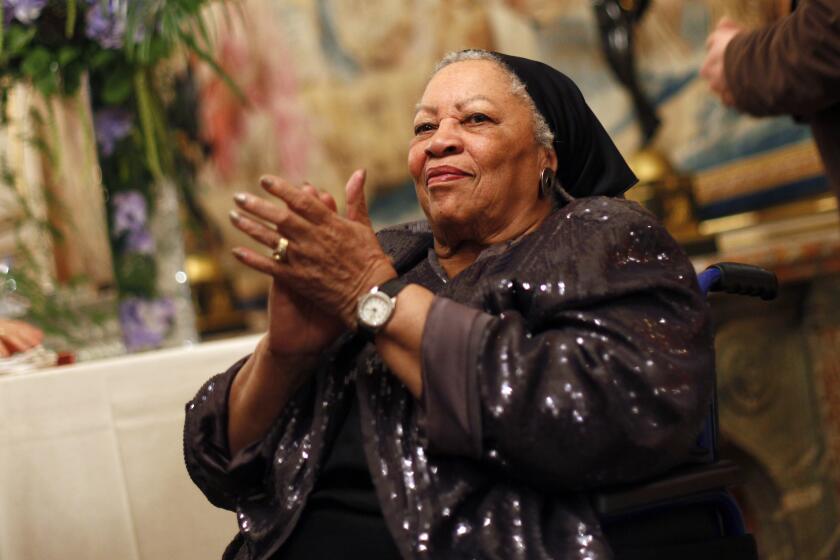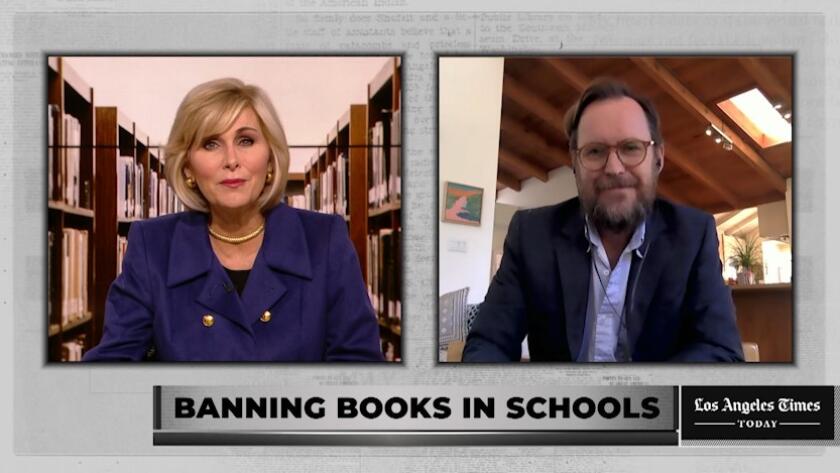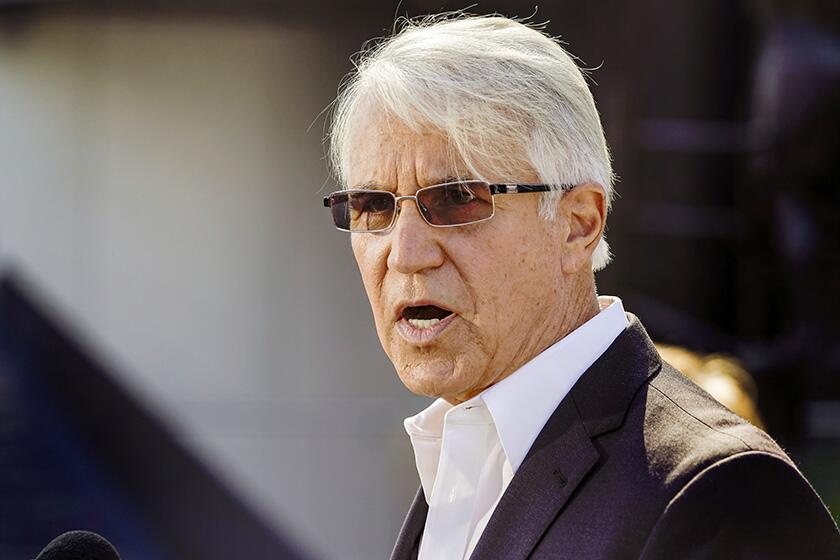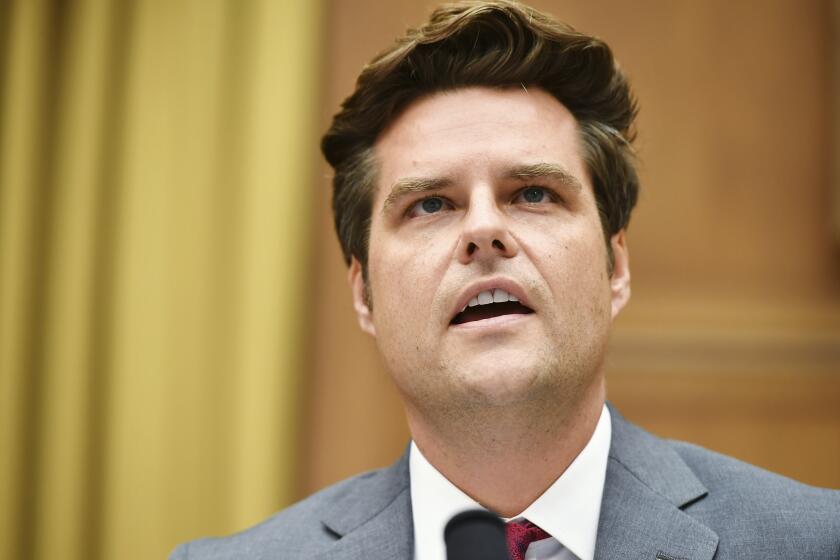Op-Ed: Book banning in the 21st century? Why my book has been removed from school shelves
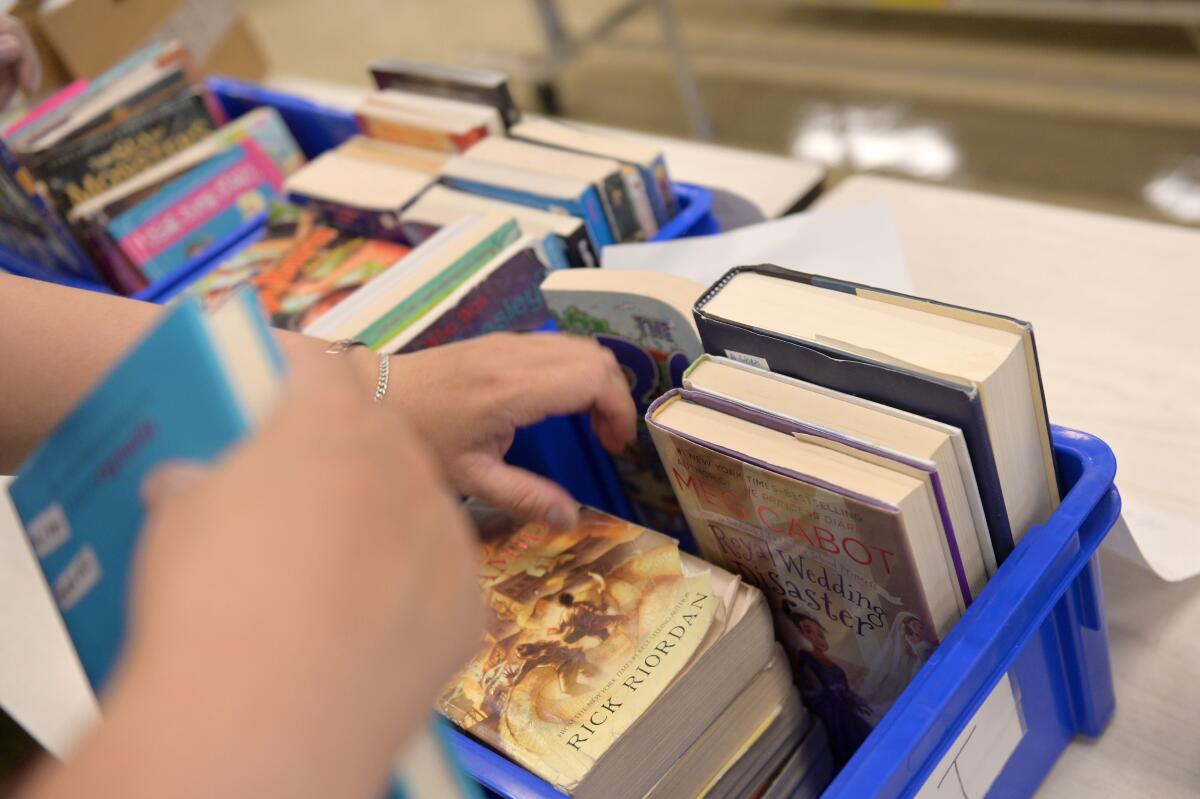
Amid the Virginia governor’s race, in which conservatives are furiously campaigning to activate their base, a proposed book ban in Virginia Beach schools is playing out a familiar piece of political theater: whipping up moral panic over public education while stoking racial fears. In fact, banning books from schools has become a favorite tactic in the runup to elections around the country.
Among the six books being challenged in Virginia Beach are Toni Morrison’s novel “The Bluest Eye”; “Gender Queer,” a graphic memoir by Maia Kobabe; “Beyond Magenta: Transgender Teens Speak Out” by Susan Kuklin; “Lawn Boy” by Jonathan Evison; and “A Lesson Before Dying” by Ernest J. Gaines. Backers of the ban describe the books as “abhorrent” and “pornographic,” with one parent claiming at a school board meeting last week that the books “groom” young people for sexual predators.
Also in this lot is a book I wrote and illustrated: “Good Trouble: Lessons From the Civil Rights Playbook.” The inclusion of this history of the civil rights movement is both curious and confounding as it is devoid of both sex and profanity, two frequent reasons cited for banning books in schools.
Glenn Youngkin, formerly a moderate, has wooed Trump voters just enough to lose his credibility.
I could pretend to be shocked and horrified, but the truth is, the controversy has helped “Good Trouble.” While my book has been removed from three high school libraries while under review, the ban has raised curiosity among readers about the kind of institutional oppression and racism described in its pages.
Maybe I shouldn’t get too excited, since I’ve learned that Evison, the author of “Lawn Boy” — a widely praised coming-of-age novel — received threats and was called a “pedo” and “sicko” after a video of a mom reading from an explicit scene from the book to a Texas school board went viral on TikTok.
According to the school district, none of the six books had been previously flagged by parents as objectionable. Nevertheless, school board member Victoria Manning and a minority bloc of conservative members on the 11-member board succeeded in having the six titles yanked from school libraries pending review.
That review process is ongoing for five of the titles, and “Gender Queer” has been removed permanently after review by the district superintendent and staff, with a spokesperson saying the book’s images did not meet the division’s “expectations for instructional value.”
“I would like to ask that you pull these books from the shelves and also block electronic access by students to getting these books IMMEDIATELY,” Manning wrote school administrators.
“I’m sickened by what I’ve just looked at and read.”
As far as my book goes, Manning told the Virginian-Pilot that she had not read it and didn’t have concerns with it, but other parents brought it to her attention. Curious to understand more about my offense, I reached out to her and three other board members via phone and email. No word back as yet.
The only specific objection to “Good Trouble” raised so far relates to an illustration in the opening chapter of activists at the National Policy Institute giving a Nazi salute celebrating the election of Donald Trump. Divisive? Surely — also factual.
Still, it’s not hard to guess what backers of the ban find so dangerous about a book about civil rights, one that takes its title from Congressman John Lewis’ rallying cry to take action against injustice. It’s just one more cynical effort by entrenched powers to harness fear of “otherness” to win elections and reverse the fight for racial equality.
Virginia’s race for governor, the most hotly followed contest in the country, is a battle over culture. The GOP has focused on schools, Democrats on Trump.
“Good Trouble” was written before the current furor over critical race theory, but no doubt its detractors view it as another attempt to rewrite and complicate the usual triumphant “look how far we’ve come” narrative. This seems to be dangerous stuff to conservatives like Manning, who has appeared on “Fox & Friends” to decry teaching about racism and who keeps a “wokeness checker” on her personal blog to fight the district’s equity policy.
Last month the Virginia Beach school board voted on a similar “equity resolution” that, among other things, would have barred teaching the idea that white people bear any responsibility for actions taken in the past by others of their race. That resolution failed to pass — permanently banning the five books still under review may too. District officials say they expect a final decision on the books by mid-December. Still, backers of the ban have succeeded in their real aim: getting so-called “objectionable” books removed from shelves and stoking fear and outrage to shore up the conservative base.
Make no mistake: Banning certain books from schools isn’t about protecting children from pornography. Once there are permanent bans on works like “Gender Queer,” the forces that find books dangerous will predictably throw in books like “Good Trouble,” which embraces the idea that conservatives are likely to find most infuriating of all: “Civil rights didn’t begin with Rosa Parks and it didn’t end with the Civil Rights Act. The story of oppression and resistance is as old as the country, and as current as today’s news.”
Watch L.A. Times Today at 7 p.m. on Spectrum News 1 on Channel 1 or live stream on the Spectrum News App. Palos Verdes Peninsula and Orange County viewers can watch on Cox Systems on channel 99.
Christopher Noxon is a writer and artist based in Ojai. He illustrated the new book “Can We Talk About Israel: A Guide for the Curious, Confused and Conflicted.” @noxonpics
More to Read
A cure for the common opinion
Get thought-provoking perspectives with our weekly newsletter.
You may occasionally receive promotional content from the Los Angeles Times.
